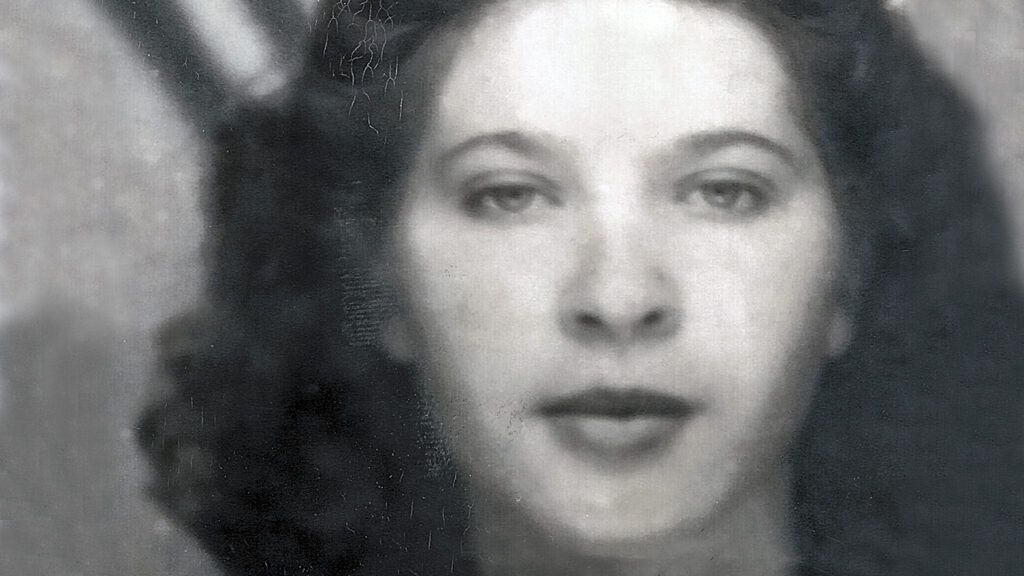Ever have a weird dream you just can’t shake? I’m a college student and intern at Mysterious Ways, and despite taking numerous psych classes, I’d never given my dreams much thought. Until a brown envelope landed on my desk one afternoon.
The envelope appeared last summer. One of my job responsibilities is looking through manuscripts sent in from readers across the country. This particular envelope caught my eye because it was lumpy and not the typical manila color. A compact disc and folded letter fell out. Something was written on the face of the CD in black marker:
Charles Edward Carver
Date: 7/08/2017
People still use CDs? I thought to myself. I unfolded the accompanying letter. The CD had been recorded at a cancer center in Winston-Salem, North Carolina, where Charles was a patient. “I’m sending you my true life story,” he wrote. “I pray that it will give hope and inspiration to others.…”
I debated whether to listen to the CD right away. I had a lot of envelopes to open plus the online submissions to go through. In the end, curiosity got the better of me. I popped the CD into my computer. First, I heard a woman’s voice. A nurse, I assumed. “We’re going to talk about your story today,” she said.
“Yes,” a deeper voice with a soft Southern accent broke in. Charles, presumably.
“I was born in Holden, West Virginia,” he said. “My mother lived in a coal mining camp with my father. My father was a veteran of World War II. He was plagued by a lot of problems….”
Charles’s voice was weary. He paused every now and then, as if to catch his breath and collect his thoughts. It was clear cancer had taken its toll. The recording was 24 minutes, 58 seconds long. I didn’t think I could listen to the whole thing. But two minutes in, I was hooked. Charles talked about his dad, a coal miner in Appalachia and an alcoholic. Charles’s mother, Helen, gave birth to four children, then had two miscarriages. Eventually Charles’s aunt took Helen to see a specialist at a hospital in Huntington. That’s when Helen learned two things. One, she had cervical cancer. Two, she was three months pregnant with Charles.
“My aunt, who relayed this story to me later in my life, said a glow came over my mother when she heard the news,” Charles said. “My mother smiled and said, ‘God is going to allow me to have this child.’”
Against her doctor’s orders, Helen refused treatment until after delivery. The cancer went into remission, and Charles was born healthy. Less than two years later, though, Helen’s cancer returned and she died. Charles would never know her. Or most of his family. His father was unable to care for the five young children. They went into foster care. When Charles was eight, he was adopted, along with his sister, by another miner named Mr. Carver.
“Mr. Carver was more like a grandfather, being 57 years of age,” Charles said on the CD. “He was loving and caring.” His wife, though, was a different story. She was verbally and physically abusive.
“Growing up, knowing they weren’t my parents, it was hard,” Charles went on. “But something amazing happened when Mrs. Carver would go on her tangents. When I went to sleep, I would dream of a lady who never touched the ground, dressed in a flowing chiffon gown.…”
Charles talked more about his childhood, then his career as a truck driver and his diagnosis of Stage 4 prostate cancer at the age of 49, six years before. The CD stopped. I stared at my computer, longing for more. What happened to Charles at Mr. Carver’s? What about the woman who never touched the ground? I left work that day and tried to put the story out of my mind. But at home or in class, I couldn’t stop thinking about Charles Carver’s CD and his dream of the woman in the chiffon gown. I had to know what happened. At work the following week, I listened to the CD again. Then I dialed the phone number listed on Charles’s letter. After a few rings, a man picked up. The same deep, weary voice.
“This is Charles Edward Carver,” he said.
“Hi, Mr. Carver,” I said. “I’m calling about your story.”
Charles chatted away like we were old friends catching up. He told me all about growing up in the coal camps of West Virginia. “Everybody knew who did what and who worked for whom,” Charles said with a chuckle. “One time when I was a teenager, I was in love with this girl. It took less than a day for someone to tell her parents!”
I asked Charles to fill in some of the holes in the story. “Mr. Carver was a loving man—he never raised his hand or voice in anger,” he told me.
“What about the dream?” I said.
The dreams were vivid, he said, like sensory overload. They always took place amid lush, green hills. A soothing tune would drift through the dream, like a movie soundtrack. And, there before him, Charles would see a woman in a chiffon gown. Her smile made her glow. With her arms outstretched, she’d call for him: “Eddy!” A nickname only a few people knew.
“The woman had curly brown hair and deep blue eyes,” Charles said. “I felt like I knew her voice too.”
Charles would go toward the woman. But he always woke up before they reached each other. By the time he was 11 or 12, the dreams stopped. Whenever life got hard, though, Charles would think back to the dream. And the woman in the chiffon gown, whose feet never touched the ground.
“I always wondered who she was,” Charles said. He paused a moment. “Well, one day, when I was 16 years old, busing tables at a steakhouse in Madison, West Virginia, in walked my brother Roger.”
Charles and Roger had been split up after their mother’s death. Roger, eight years older, stayed in foster care until he was 18, then went to work in the coal mines. He knew the Carvers had adopted his younger siblings and would pass by their house on his way to work to wave to Charles. But they’d never spoken. Not until that day at the steakhouse.
“I’m going to trim up the family cemetery for Memorial Day,” Roger told Charles. “I could use your help.”
Eager for a connection to his past and to his big brother, Charles agreed. They traveled to the family cemetery in Hell’s Creek, a place Charles had never been. They mowed the lawn, then Roger pointed to a gravesite. “That’s where your mother is buried,” he told Charles. The grave had a granite headstone, engraved with Helen’s dates of birth and death.
“At the top of the stone was an oval case,” Charles told me. “It opened to reveal a picture inside. My mother as a young lady.”
I could make out the muffled sound of Charles crying on the other end of the line. He had never seen a photo of Helen before, he told me. Never known she had curly brown hair. Or deep blue eyes.
“I don’t know how long I stood at the grave that day,” Charles said. “But I couldn’t stop looking at the photo. She was the woman. The woman who came to me in my dreams when I was just a boy. The woman in the chiffon gown.”
Charles went on to tell me about his wife, to whom he’d been married for more than 30 years. How they had never had kids of their own but were parents themselves to eight foster kids. How his siblings, with whom he’d eventually reconnected, had all died of cancer. How he didn’t have much longer to live himself. He had only one story left to share with the world.
“That day in the cemetery was God’s way of giving me peace,” Charles said. “Cancer robs, it steals. But there’s so much in this life that’s beautiful. The love a mother has for her child? That, it seems to me, is everything.”





